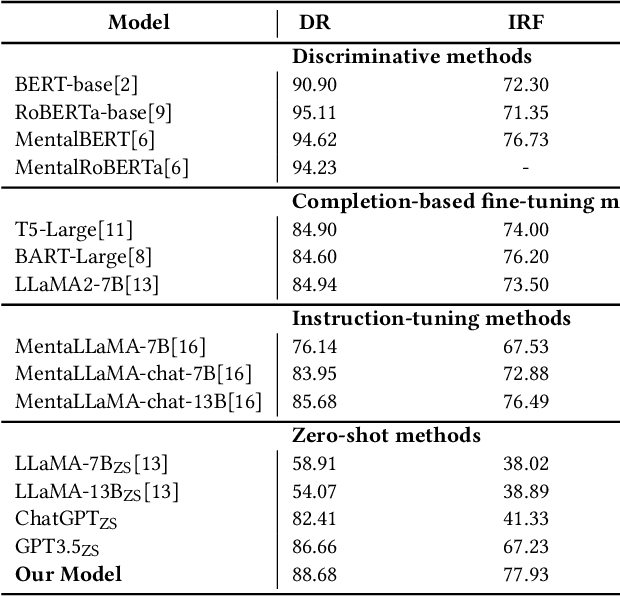Zero-shot Explainable Mental Health Analysis on Social Media by incorporating Mental Scales
Paper and Code
Feb 09, 2024



Traditional discriminative approaches in mental health analysis are known for their strong capacity but lack interpretability and demand large-scale annotated data. On the other hand, generative approaches, such as those based on large language models (LLMs),have the potential to get rid of heavy annotations and provide explanations. However, their capabilities still fall short compared to discriminative approaches, and their explanations may be unreliable due to the fact that the generation of explanation is a black-box process. Inspired by the psychological assessment practice of using scales to evaluate mental states, our method incorporates two procedures via LLMs. First, the patient completes mental health questionnaires, and second, the psychologist interprets the collected information from the mental health questions and makes informed decisions. Experimental results show that our method outperforms other zero-shot methods. Our method can generate more rigorous explanation based on the outputs of mental questionnaires.
 Add to Chrome
Add to Chrome Add to Firefox
Add to Firefox Add to Edge
Add to Edge